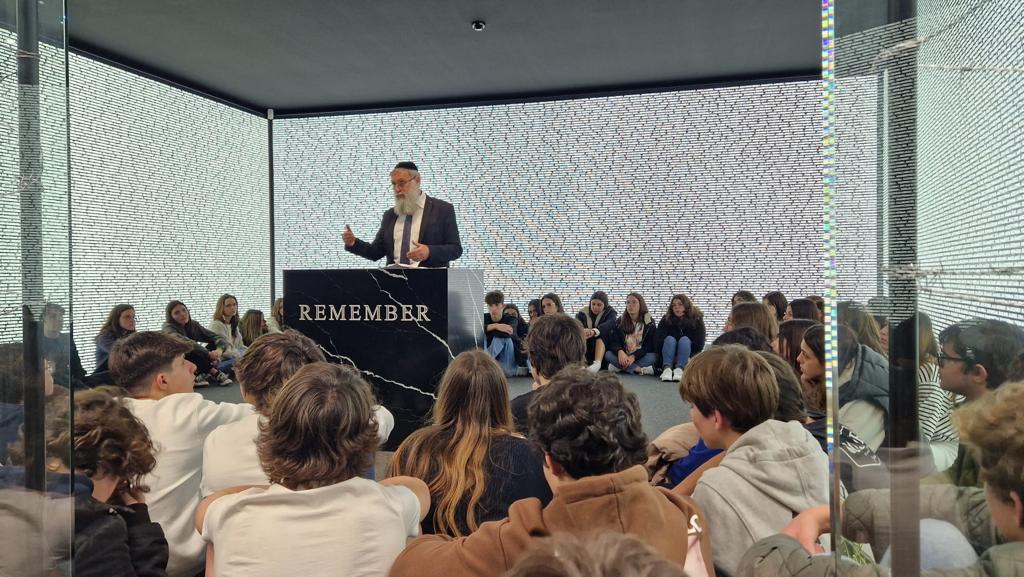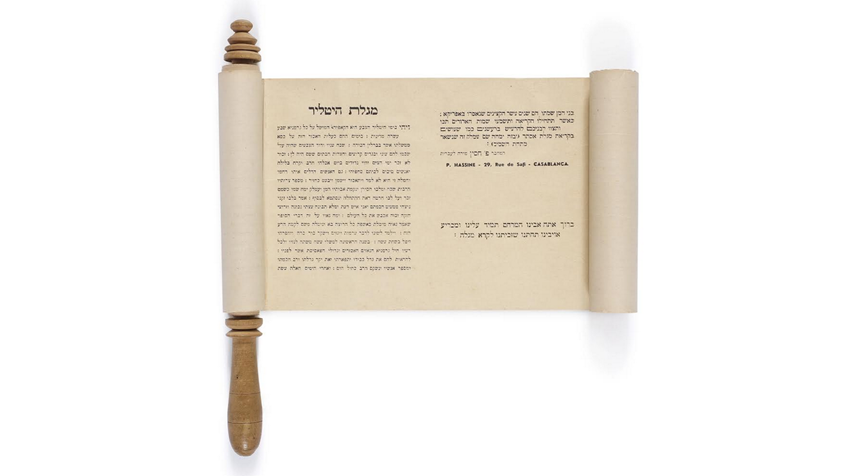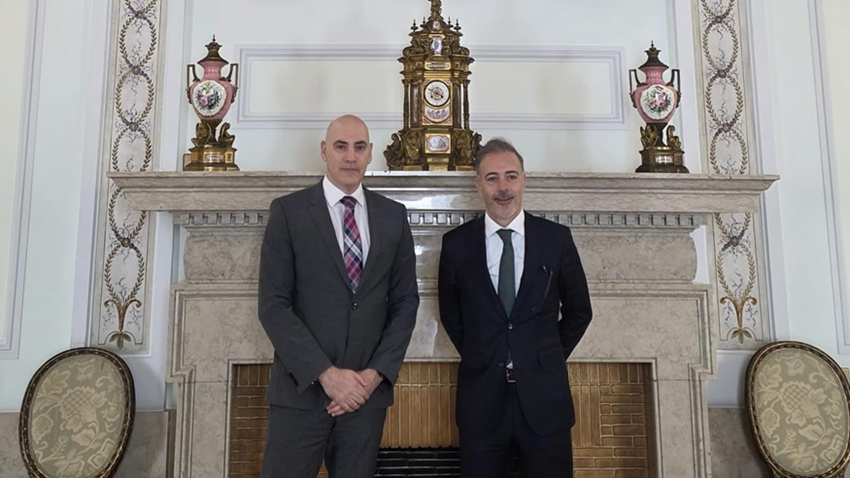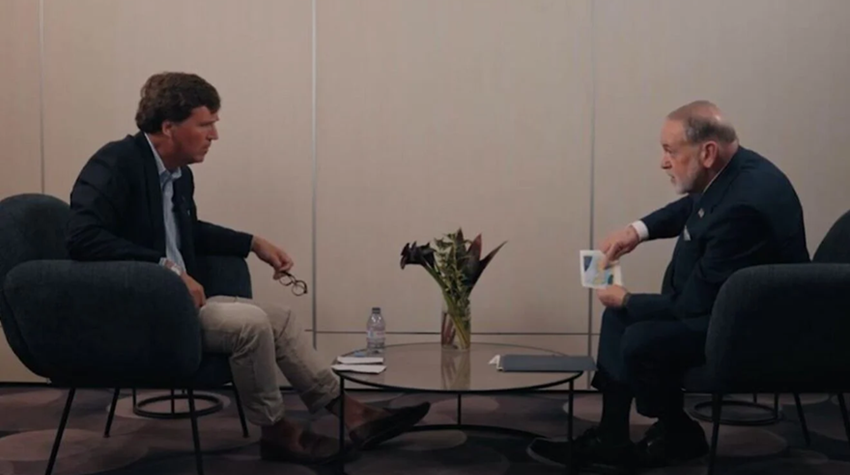The Chief Rabbi of Oporto spoke to the students about the preservation of memory. Credit: CIP/CJP
The daily visits of schools from all over the country to the Holocaust Museum of Oporto had an interesting moment this month of February when some schools asked the head rabbi of Oporto to explain to them the deep meaning of the museum's room of names.
In a brief explanation produced in Spanish, the rabbi Daniel Litvak addressed a few words to the young people.
“Collecting the names of the victims of the Shoah is a very arduous task, as the Nazis destroyed archives and records; in many cases entire families and whole villages were wiped out leaving no traces of existence. Today, over 4,500,000 names have been registered.
The room of names that we see here is a small replica of rooms that were made in the largest museums in the world, such as in Jerusalem and Washington, and aims to symbolically preserve the memory of the victims of the Holocaust. Shown here are approximately 30,000 names, representing about a half percent of the Jewish victims of the Holocaust.
In some places I visited, the names of the victims are accompanied by biographies, photos and testimonials. There is a hall in Yad Vashem in Jerusalem containing 3,000,000 names.
What is the purpose of this room, where family members of our community are also present?
Firstly, it is to preserve the memory of the victims of the Holocaust, who for the most part did not have tombstones, so that they have a permanent place in history and their names are not forgotten.
Secondly, it serves to personalize the tragedy. The Holocaust is often described and represented with numbers and statistics, but this room allows us to see that this tragedy is made up of millions of individual tragedies, with a productive life, a job, a lot of love, an identity, large families, a social life, children, adults and the elderly who suffered and died cruelly.
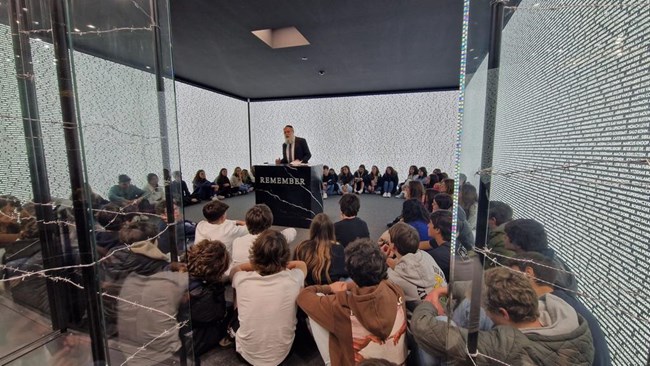
The Chief Rabbi of Oporto spoke to the students about the preservation of memory. Credit: CIP/CJP
Furthermore, it is a way to honour victims and to show respect for their lives and legacies, serving also as a place of reflection and mourning for the people who lost family and friends in the Holocaust.
There are those who accuse the Jews of talking too much about the Holocaust. Memory is extremely important in Judaism. It is even a relevant factor in its survival.
With regard to the Jewish celebration of the 9th of Av, which marks the destruction of the Temple in Jerusalem, Napoleon exclaimed that a people that remembers its defeats millennia ago cannot be defeated. The emperor repeated what many others have concluded throughout history.
My grandparents remembered that once in Eastern Europe, lighting candles at night was forbidden due to a situation of war, but a Jewish family fulfilled the precept of Chanukah. A ruthless general knocked on the door. He had been lost on the hill and thanks to the candles of that little Jewish house he managed to find his way. Furthermore, he said that it was not worth punishing people who, millennia later, celebrate the names and struggles of their ancestors.
This is the Name Room of the Oporto Holocaust Museum. For the general public, it is a silent place, where words are not appropriate, a place to reflect on the magnitude of the catastrophe that befell the Jewish people and to understand the consequences of the hatred that caused the cruel death of six million Jews and many members of other unfortunate minorities.
We give thanks that your pure hearts respect this place with dignity.”
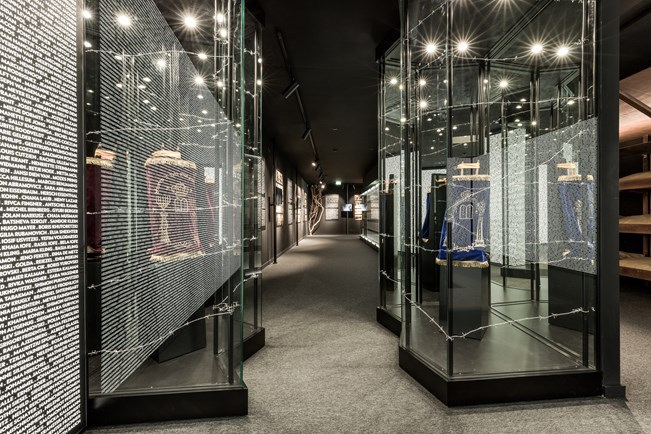
The Museum sharing documents and objects left by refugees in the Oporto Synagogue. Credit: CIP/CJP
About the Holocaust Museum of Oporto
The Holocaust Museum of Oporto was created in 2021 by the Jewish Community of Porto (CIP/CJP) in partnership with B’nai B’rith International and Holocaust museums around the world. It focuses on the general public, especially the younger ones, and invests in education, professional training for educators, promoting exhibitions and supporting research.
The Museum honors Holocaust victims and sharing with society in general documents and objects left by refugees in the Oporto Synagogue during World War II.
The space is supervised by members of the Jewish Community of Oporto whose parents, grandparents and relatives were victims of the Holocaust and is part of a strategy to combat antisemitism.































